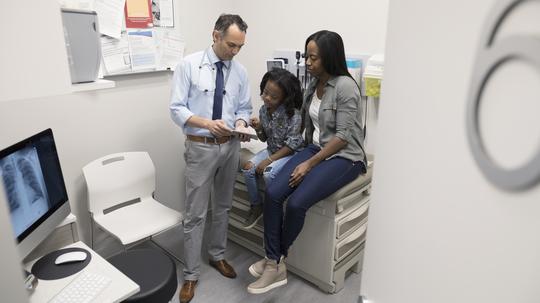
Jared Taylor is no stranger to the bureaucracy of health care.
As recently as 2017, he was working at a company called Medicus Healthcare Solutions in Windham, New Hampshire, working on recruiting and staffing health care professionals. For the most part, the work was routine—and he was good at it, making his way up to business development executive. But one problem, he noticed, kept popping up.
“I saw how inefficient the onboarding process was for all health care professionals,” he said.
So in mid-2017, he left Medicus and went on to start BlocHealth. Originally founded as a recruiting firm, Taylor always knew his end goal was to make it a tech company. The issue to figure out was in what step during the recruiting and onboarding process to bring in technical solutions.
And, like at Medicus, one thing kept popping up, over and over: the slowness of paperwork for credentialing applications.
“Credentialing is the process of gathering key documents that prove a provider's background—so this had to be done, and I was doing it,” Taylor said. “As a result, we're losing out on some opportunities. In the state of Massachusetts, it was taking a really long time. That was when we decided to pivot strictly to the onboarding-credentialing-licensing model for health care.”
That was only about a year ago: mid- to late 2018, as Taylor recalls. At the same time, he brought on Adrienne Bolger to head up the new technical operations as CTO. (Taylor himself is now CEO of BlocHealth.)
The solution Taylor and Bolger came up with? Blockchain.
Instead of having Taylor process lengthy paperwork, BlocHealth’s technical team is building what he calls a “health care professional credential sharing network,” powered by a public blockchain and BlocHealth’s own tools. For example, a registered nurse could go in, fill in their information one time on a single page, and then share that with necessary stakeholders—hospital systems, potential employers—over time.
“The blockchain piece is they're trying to build a single source of truth,” Taylor said. “For work history, [health care professionals] have to follow something called primary source verification. For other credentials, there's a couple that need to follow that primary source: their patients.”
Now, Taylor faces the prospect of proving this concept can work at scale. Earlier this year, BlocHealth raised a pre-seed round that he put at somewhere between $500,000 and $750,000. And Taylor is continuing to build out his team, which currently consists of four people working full time and a handful of freelancers. He has yet to implement the blockchain credentialing system with any major local providers, although that's a clear goal of his within the next few months.
But even that early growth begs the question: Is blockchain just a buzzword here?
Put simply, blockchain is an anonymized, decentralized system for managing data and keeping accounts, and while it’s most commonly associated with cryptocurrencies (think Bitcoin and Ether), it has potentially far-reaching implications. In a recent report called “How Blockchain Technology Could Disrupt Healthcare,” the firm CB Insights predicts blockchain “could help solve some of the industry’s most pressing compliance, interoperability, and data security issues, as well as enable new patient-centric business models.” Yet it goes on to warn: “But unlocking blockchain’s potential for healthcare will be a slow process, and change is unlikely to come fast.”
Taylor, having come from a health care background, thinks blockchain is the perfect fit to disrupt the industry.
“The policies are outdated,” he said. “You look at some of the credentialing standards in [health care] applications, and they were last updated 20 years ago. Let’s put a little technology behind itl let's speed up the process. So what we initially built today is a way of kickstarting that initial process.”
Down the line, Taylor hopes BlocHealth can help improve access to health care, especially for New England’s rural communities. Anything that can help get a doctor or nurse in to assist a patient faster will ultimately improve health outcomes—and that’s where BlocHealth can come in.
“We want to be a market leader in this credentialing space,” Taylor said. “We want to be able to assist and partner with large health systems to make it so they're able to leverage our platform and get people that are qualified into the door at a much faster rate—much less than [the current average of] 60 to 120 days—that’s a target for us. We want to get it 14 days; that's a big goal for us. And then beyond that, if we can get it faster, that's a win.”








